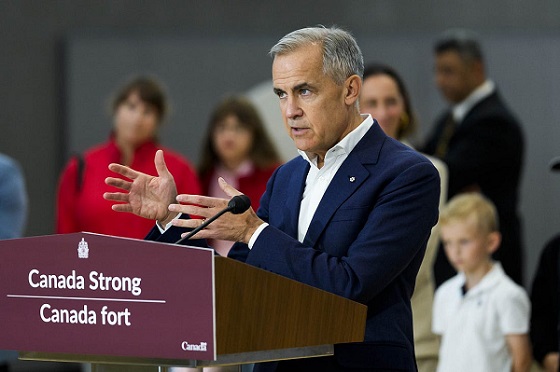Health
Dad says 5-year-old develops autism after being forced to get 18 vaccines in 1 day

From LifeSiteNews
By Michael Nevradakis Ph. D., The Defender
As part of a custody battle, a Tennessee judge ordered a family to vaccinate all three of their children, all of whom had never been vaccinated. Five-year-old Isaac immediately became ill and was eventually diagnosed with severe regressive autism.
In 2016, David Ihben moved his wife and three children from Chicago to Jamestown, in rural Tennessee, with high hopes for a new and calmer life.
But the dream turned into a nightmare for David and his children in December 2019, when divorce proceedings and a subsequent custody battle resulted in the forced vaccination of the children – and changed the family’s fortunes forever.
Ihben said his ex-wife decided “this wasn’t the life she wanted.” So they were attempting to develop a parenting plan in family court – when Tennessee judge Todd Burnett “pulled up the vaccine issue” after discovering the couple’s children were unvaccinated – and forced the parents to vaccinate their children.
Ihben’s two oldest children – daughter Hannah and son Joseph – were spared significant adverse events following their vaccination.
But his youngest son, Isaac, wasn’t so fortunate. After receiving 18 vaccines in one day, Isaac developed severe regressive autism. Today, he requires around-the-clock care.
The children’s mother soon abandoned the children, leaving Ihben to raise them as a single parent – even though he is still obliged to pay child support.
Ihben shared his story with Children’s Health Defense’s (CHD) Vax-Unvax bus. In a subsequent interview with The Defender, he detailed the challenges he faces in caring for Isaac and the harassment he endured from officials in his community. Ihben shared documentation with The Defender verifying his story.
‘How can a judge force medical care without a doctor’s input?’
Ihben told The Defender his entire family was unvaccinated. “I’ve never had any. My dad was drafted by the Army in 1961, and he didn’t get any either. We’ve never vaccinated,” he said. “Our children had to sign religious exemptions for school.”
During divorce proceedings though, his wife’s attorney used the vaccination issue to drive a wedge between the parents.
“When we went to court, I guess her attorney knew that [Burnett] was a pro-vaccine judge and that’s something that they could get me on,” Ihben said.
According to Ihben, Burnett told the couple that it was his “personal opinion that not vaccinating your children is child abuse.” He then told the couple that whichever parent would be willing to vaccinate the children that same day would leave the courthouse with custody.
“I said, ‘Your Honor, we have rights. It’s between the mom and their father,’” Ihben recalled. “Her attorney whispered to her, and she goes, ‘I’ll take them down and vaccinate them today.’”
“I was so surprised, because me and my ex-wife didn’t agree on much, but we did agree on that,” Ihben said, referring to their views on vaccination.
After the hearing, Ihben and his wife were granted joint custody of the children, with their mother as their primary guardian. Later that day, the children received their childhood vaccines – and Isaac immediately became sick.
“My daughter had previous allergies … so the doctor refused to give her all in one day. They split those … She didn’t have any side effects from what I can see,” Ihben said. “[Joseph] was in the ICU for a couple of days but seems to be okay. But [Isaac] spent 12 days in the ICU, eight days with a 106-degree fever.”
Isaac, who was 5 years old at the time, was “just a normal happy kid,” Ihben said.
Today, Isaac has severe regressive autism. Ihben told The Defender:
“He doesn’t talk. He wears a diaper. He eats out of a baby bottle 20-30 times a day, he has speech therapy and will require 24-hour care and supervision for the rest of his life.
“I haven’t had a full night’s sleep in four years. He has to be changed every two hours, or he will have an accident. If you have a child with regressive autism or know someone, you will understand what our days are like.”
Ihben didn’t learn about Isaac’s injuries right away, because the court initially slapped him with a six-month restraining order. When the six months were up, he finally made plans to pick up his children for “two-hour supervised visitation” at a local McDonald’s.
“My youngest comes walking out and I’m like, ‘What’s going on?’” He said his oldest children then told him about what happened to Isaac. “My children told me everything that’s going on. Basically, nobody’s given me information. I had to go off what 10- and 11-year-olds were telling me,” Ihben said.
Ihben tried to find out what happened to Isaac – but encountered more obstacles at Cookeville Regional Medical Center, his local hospital. “The judge had sealed the hospital records. I still cannot get them,” he said.
It wasn’t until he enrolled his daughter in high school that, while obtaining her records from the local health department, he had a chance to view Isaac’s records. That’s when he saw that Isaac had received 18 vaccines in one day.
“How can a judge force medical care without a doctor’s input?” Ihben asked. “I don’t think judges should be dictating medical treatment from the bench.”
According to Ihben, doctors at Vanderbilt University in Nashville said Isaac’s injuries “are a direct result from forced vaccination,” with one doctor telling Ihben that “she’s seen only one other kid that acts like Isaac does.”
Required to continue paying child support, despite mother’s disappearance
Soon after seeing his children for the first time after the custody battle, another surprise was in store for Ihben and his family: Ihben’s ex-wife called to say she and the children had been evicted.
After he kept the children for a week, their mother “got a free house, everything furnished and paid,” and the children were returned to her.
“Then she got evicted from there” in May 2020, Ihben said. He again picked up the children – but that was the last they saw of their mother. According to Ihben, after her second eviction, she left town without a trace.
“We haven’t heard from her or seen her,” Ihben said. “It’ll be five years in May.”
Ihben still pays child support to the state, even though he alone takes care of the children. He said the child support money, which remains uncollected, goes to a state fund – and, if it remains unclaimed, will be confiscated by the state when the children reach adulthood.
Ihben said that though he has gone to court to request full custody of his children or a reduction of his child support payments, he has faced a catch-22 situation.
“The judge said, I can’t do anything unless you get her here in front of me,” Ihben said. “I was like, ‘I’ve served her. Nobody knows where she is.’”
Ihben said he believes the children’s mother didn’t realize Isaac was going to be hurt so badly, and “she just can’t face it.” He added, “I just don’t understand, if she’s been gone almost five years, why she still has full custody, why I still have to pay child support.”
Tennessee laws, local officials pose challenges for raising Isaac
Ihben described the day-to-day realities of caring for Isaac, who will turn 11 next month and just started the fifth grade in a special education program. He said:
“Our lives have changed forever. I can’t have a regular job. I pick up stuff here and there … I have an alarm that goes off every two hours to change Isaac. He eats in the middle of the night … We live out in the country. There’s no bus, so I take him to school back and forth.
“He doesn’t talk, so you don’t know if he’s sick, if he’s upset, if he’s hungry, if he’s cold, if he has a stomach ache … I’ve got a mental list, and I just check it off and hopefully I hit the one that calms him and provides what he needs.”
State rules also pose obstacles. “You’re not allowed to have home healthcare for a disabled child unless you have no other children in the home under 18,” Ihben said.
Ihben noted that Tennessee ranks among the states with the lowest level of funding for autistic children, adding that autistic children are frequently mistreated.
“Our local school district has restraint chairs for autistic children. They are allowed to put Isaac in a chair, to pepper spray him, to tase him. Police departments have no training for dealing with autistic children,” Ihben said.
Ihben said state, county and town officials have attempted to intimidate him and his family.
According to Ihben, the Tennessee Bureau of Investigation (TBI) showed up at his home on Dec. 5, 2023. “Somebody starts beating on the door … there’s a truck at the end of the road, a truck at the end of the other road and two trucks in the driveway. They had assault weapons.”
Ihben said the officers claimed that a social worker wanted to speak with him, but that he refused to open his door for them. He submitted a Freedom of Information Act request to the state to find out why his home was raided, but was told there are “no records of anything.”
The TBI raid took a toll on him. “I had a heart attack that night,” he said. “I couldn’t breathe.” He said the incident still affects him today. “I’m sure I have PTSD from it. I’m still under treatment,” Ihben said.
In June 2023, Ihben said he went to his county commission meeting to tell them about what happened to his family. The county commissioner, Jimmy Johnson, left him a voicemail warning him not to hold any rally or protest.
“The commissioner called the sheriff,” Ihben said, but ultimately “they backed off.”
In another incident, Ihben said he was banned from his local Walmart store after a store manager called the police because Isaac “was causing a disturbance.” This obliged Ihben to shop at another Walmart, an hour away from his home.
Ihben said it’s also difficult to find a lawyer to represent him and his family. “No attorney is willing to take on the judge.”
Local officials ‘tried to scare us’ into not doing Vax-Unvax bus interview
Ihben credited CHD and its Tennessee Chapter for helping him and his family. “We wouldn’t be here without CHD helping us out,” Ihben said. “The Tennessee Chapter has helped us out a lot.”
Ihben said he recently saw “Vaxxed 3” with members of the state’s CHD chapter. “What we have to live through every day is horrible, but it could be worse,” Ihben said, citing stories in the film of children who died post-vaccination.
According to Ihben, his efforts to promote CHD initiatives in his community, such as the visit of the Vax-Unvax bus earlier this year, have also been met with intimidation.
“We put a little flyer together [for the Vax-Unvax bus] and we started passing it out,” Ihben said. But on Feb. 1, the day of his bus interview, Ihben said his wife’s attorney, her husband – who is the attorney for the local school board – and Burnett, who mobilized the TBI, “tried to scare us into not doing the bus interview.”
Getting the word out, spreading the message is ‘the only weapon we have’
Isaac has recently shown some improvement, according to Ihben. “He’s doing better slowly … He’s in a lot of therapy. He’s starting to write some numbers and letters on his own. Teachers think he’s reading, but he’s still never said a word.”
Ihben said this has been a learning experience for his oldest children, who will “have to take care of Isaac every day” after his death. “That’s a lifetime commitment.”
Another silver lining, according to Ihben, is that Isaac’s story has become a learning experience for his family and many members of his local community.
“This hasn’t just got me learning. My kids are learning. Hannah and Joseph are learning about their government and their food and their environment. They’re teaching their friends about this.”
For Ihben, getting the word out and spreading the message is “the only weapon we have.” He said, “It’s powerful that my kids’ friends come up and say ‘we’re sorry for what happened to you, we’ve seen the [Vax-Unvax] interview.’”
Ihben said he hopes the message will help other children avoid Isaac’s fate. “I hope Isaac will be the last,” he said.
This article was originally published by The Defender – Children’s Health Defense’s News & Views Website under Creative Commons license CC BY-NC-ND 4.0. Please consider subscribing to The Defender or donating to Children’s Health Defense.
Health
Leslyn Lewis urges Canadians to fight WHO pandemic treaty before it’s legally binding

From LifeSiteNews
Conservative MP Leslyn Lewis is urging Canadians to demand a parliamentary debate on the WHO Pandemic Agreement, highlighting risks to national sovereignty.
Conservative Member of Parliament (MP) Leslyn Lewis called on Canadians to petition against the World Health Organization’s (WHO) pandemic treaty before it becomes legally binding.
In an October 23 post on X, Lewis encouraged Canadians to demand that politicians debate the WHO Pandemic Agreement before it becomes law after warnings that the treaty could undermine national freedom and lead to global surveillance.
“I have raised red flags about its implications on Canada’s health sovereignty and the federal government’s willingness to enter a legally binding treaty of this weight without any input from Parliament,” she declared.
In May, Canada, under Liberal Prime Minister Mark Carney, adopted the treaty despite warnings that the agreement gives the globalist entity increased power in the event of another “pandemic.”
However, Lewis revealed that since the agreement has yet to be officially signed, Canada is not bound to it and can still make amendments.
“We are now in a critical window of opportunity to ask tough questions and debate the treaty before it is signed by the Minister of Foreign Affairs and binds our nation,” she explained.
Lewis encouraged Canadians to sign a petition calling for a debate of the agreement as well as contacting their local MPs to request a parliamentary review of the treaty.
Lewis revealed that Canadians’ persistent opposition to the treaty has already resulted in some of the more dangerous clauses, including restricting free speech, freedom of movement, and government surveillance, being removed from the final agreement.
“Thanks to the engagement of countless Canadians and concerned citizens around the world, the most extreme provisions in the WHO Pandemic Treaty were removed — these measures would have undermined national healthcare sovereignty and given international bureaucrats sweeping powers,” Lewis declared.
“The removal of provisions on vaccine mandates, misinformation and disinformation, censorship requirements, travel restrictions, global surveillance, and mandatory health measures happened because people paid attention and spoke up,” she continued.
Among the most criticized parts of the agreement is the affirmation that “the World Health Organization is the directing and coordinating authority on international health work, including on pandemic prevention, preparedness and response.”
While the agreement claims to uphold “the principle of the sovereignty of States in addressing public health matters,” it also calls for a globally unified response in the event of a pandemic, stating plainly that “(t)he Parties shall promote a One Health approach for pandemic prevention, preparedness and response.”
Business
Bill Gates walks away from the climate cult

Billionaire Bill Gates — long one of the loudest voices warning of climate catastrophe — now says the world has bigger problems to worry about. In a 17-page memo released Tuesday, the Microsoft co-founder called for a “strategic pivot” away from the obsessive focus on reducing global temperatures, urging leaders instead to prioritize fighting poverty and eradicating disease in the developing world. “Climate change is a serious problem, but it’s not the end of humanity,” Gates wrote.
Gates, 70, argued that global leaders have lost perspective by treating climate change as an existential crisis while millions continue to suffer from preventable diseases like malaria. “If I had to choose between eradicating malaria and preventing a tenth of a degree of warming, I’d let the temperature go up 0.1 degree,” he told reporters ahead of next month’s U.N. climate conference in Brazil. “People don’t understand the suffering that exists today.”
For decades, Gates has positioned himself as a leading advocate for global climate initiatives, investing billions in green energy projects and warning of the dangers of rising emissions. Yet his latest comments mark a striking reversal — and a rare admission that the world’s climate panic may have gone too far. “If you think climate is not important, you won’t agree with the memo,” Gates told journalists. “If you think climate is the only cause and apocalyptic, you won’t agree with the memo. It’s a pragmatic view from someone trying to maximize the money and innovation that helps poor countries.”
The billionaire’s change in tone is sure to raise eyebrows ahead of the U.N. conference, where climate activists plan to push for new emissions targets and wealth transfers from developed nations. Critics have long accused Gates and other elites of hypocrisy for lecturing the public about fossil fuels while traveling the globe on private jets. Now, Gates himself appears to be distancing from the doomsday rhetoric he once helped spread, effectively admitting that humanity faces more immediate moral imperatives than the weather.
(AP Photo/Alex Brandon)
Stunning Climate Change pivot from Bill Gates. Poverty and disease should be top concern.
-

 Alberta2 days ago
Alberta2 days agoFrom Underdog to Top Broodmare
-

 Business1 day ago
Business1 day agoCanada’s economic performance cratered after Ottawa pivoted to the ‘green’ economy
-

 Business23 hours ago
Business23 hours agoBank of Canada governor warns citizens to anticipate lower standard of living
-

 Opinion2 days ago
Opinion2 days agoBill Gates Shakes Up the Climate Discussion
-

 Business1 day ago
Business1 day agoCanadians paid $90 billion in government debt interest in 2024/25
-

 International2 days ago
International2 days agoNetanyahu orders deadly strikes on Gaza with over 100 dead despite ceasefire deal
-

 National2 days ago
National2 days agoWatchdog Presses Ottawa to Release Hidden Lobbying Rulings
-

 Agriculture15 hours ago
Agriculture15 hours agoCloned foods are coming to a grocer near you



